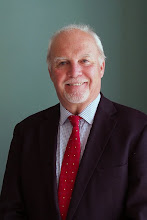I've been reading through my old copy of a book by the celebrated science fiction author, Arthur C Clarke. One his non-fiction books is titled 'Profiles of the Future'. First published in 1962, Clarke updated it for a second edition in 1972; my copy dates from 1976.
In this book Clarke takes the Mickey mercilessly from a bunch of eminent scientists who said some things were impossible. They were wrong, of course, but their reputations made it extremely difficult for pioneers and visionaries to convince their fellow men (and more importantly their governments) that something was possible, useful and even necessary. In a defence market dominated by a monopsony power, Clarke's history lesson has sobering implications.
See if you can match the quotations below with the list of eminent scientists at the end of this post.
1. "Aerial flight is one of that class of problems with which men will never have to cope... Flight by machines heavier than air is unpractical and insignificant if not utterly impossible."
2. "The popular mind often pictures gigantic flying machines speeding across the Atlantic and carrying innumerable passengers in a way analogous to our modern steamships... It seems safe to say that such ideas must be wholly visionary"
3. "By the year 1980 the [passenger-carrying] aeroplane will have reached the limits of its development: a speed of 110-130 miles per hour; a range of about 600 miles; a payload of about 4 tons; and a total weight of about 20 tons." This prediction was made in 1929.
4. "There has been a great deal said about a 3,000 mile high-angle rocket. In my opinion such a thing is impossible for many years... I don't think anyone in the world knows how to do such a thing and I feel confident that it will not be done for a very long period of time to come." This was written in December 1945, mark you!
It's probably worth recalling Clarke's first law: "When a distinguished but elderly scientist states that something is possible, he is almost certainly right. When he states that something is impossible, he is probably wrong." Clarke's third law is worth keeping in mind, too: "Any sufficiently advanced technology is indistinguishable from magic."
So what does this mean for innovators? It can mean one of two things: firstly, that the Innovator really is a crackpot peddling an impossible idea (and that's quite possible); or secondly, that the innovator has a genuinely disruptive idea based on insights about need and demand (and feasibility) that have escaped, or simply not engaged, the interest of an entrenched gatekeeper or master of the conventional wisdom.
Looking at history, it's clear that many brilliant ideas and insights have languished, often for decades, because the conventional wisdom (or vested interests) wouldn't allow them to flourish and grow. Part of the Innovator's challenge, then, is to sell the very idea as well as the more practical implementation. Think about the 19th century London doctor, John Snow, who first identified the mechanism by which cholera was transmitted. Or Ignasz Semmelweis, whose pioneering observations and research in 19th century Vienna demonstrated that you could reduce the incidence of puerperal fever, or postpartum infection of mothers, by 90%. Both were ridiculed by the medical establishment of their time, but they were both spot-on and we today owe a massive amount to their persistence and courage.
So it seems that innovators need skills in communication and persuasion, and powerful friends and sponsors who can support them - which is entirely consistent with the literature on innovation, but that's another story.
Sources of the Quotations - did you get them right?
A. William H Pickering, US astronomer - early 20th century
B. Nevil Shute (NS Norway), aircraft designer and novelist
C. Prof. Simon Newcomb, US Navy Professor of Mathematics - late 1800s
D. Dr Vannevar Bush, Director Office of Scientific Research and Development
Wednesday, 27 November 2019
Subscribe to:
Post Comments (Atom)


No comments:
Post a Comment